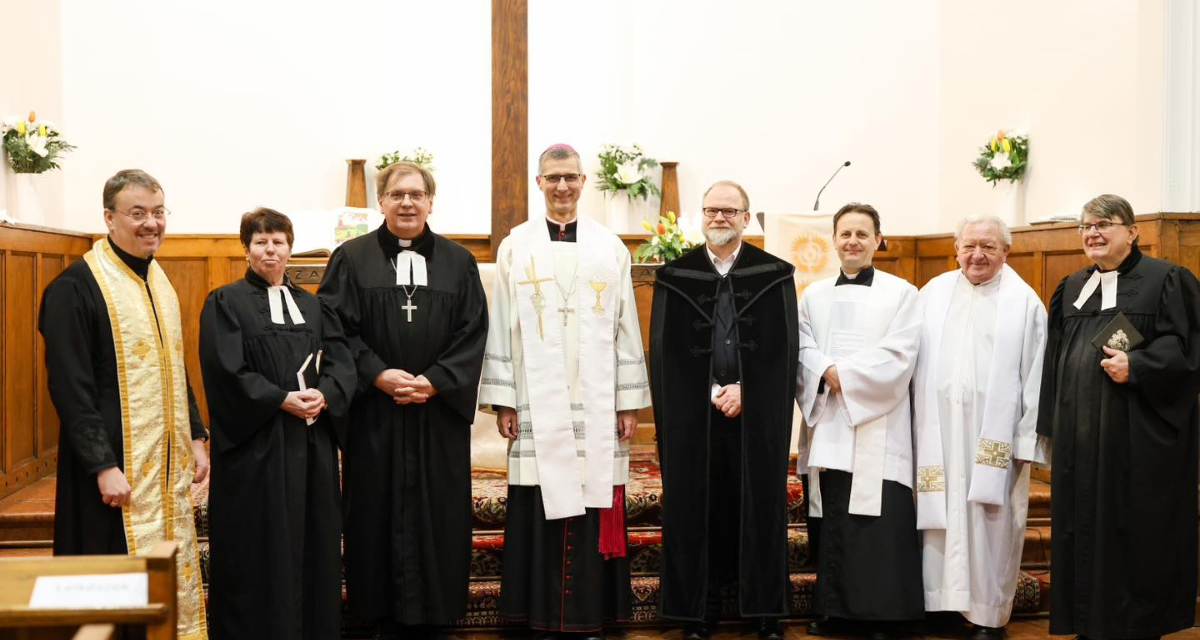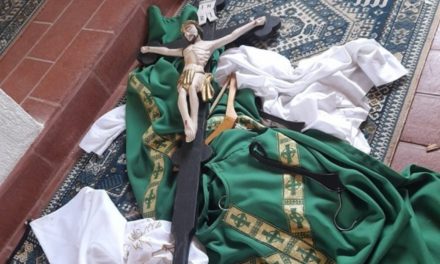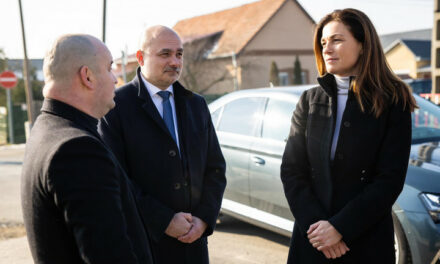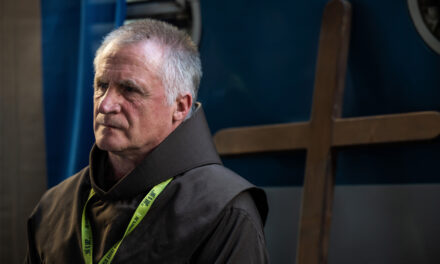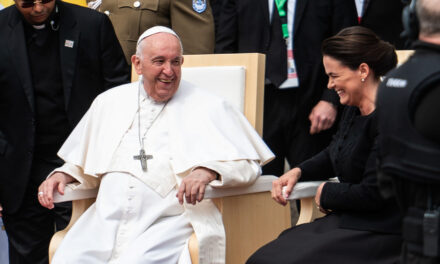Christ himself jumped over some high walls, you could talk and debate with him.
On January 23, believers in Christ gathered in the Lutheran church in Budavár to search together with Bishop Balázs Martos Levente for the ecumenical week of prayer, what we can do for the victims of disease, injustice and war, for those who have lost hope, and how to fight for the depth of faith. Roman and Greek Catholics, Lutherans and Reformed professed their faith together.
At the invitation of Tamás Fabiny, President-Bishop of the Evangelical Church of Hungary, Balázs Martos, Auxiliary Bishop of Esztergom-Budapest, Imre Bence and Márta Bencené Szabó, Lutheran pastors of Budavar (Budavar Evangelical Parish), Ákos Makláry, Greek Catholic parish priest (Buda Greek Catholic Parish), Balázs Siba (Buda Reformed Parish) and József Tampu-Ababei, parish priest of the Havas Bolgodasszony church in Budapest-Kristinaváros, served at the ecumenical liturgy, which was also attended by retired parish priest József Szítás.
Tamás Fabiny greeted the faithful who filled the church: we give thanks for the existing unity and we pray for the realization of complete unity according to God's will.
He drew attention to the Christians in Burkina Faso, who compiled the themes and rituals of the week of prayer, who are suffering persecution - he asked for prayers for them in their difficult situation.
He expressed his joy that he can welcome Bishop Balázs Levente Martos, who "incarnates ecumenism in person", because his grandfather, Ödön Martos, was an evangelical pastor in Sárvár, and his great-grandfather, Károly Pröhle, is a professor and dean of Evangelical Theology in Sopron.
"We can learn a lot from each other and about each other if we dare to cross the old, silently built walls of aversion or fear," Bishop Balázs Martos Levente expressed the importance of the week of prayer held for the unity of believers in Christ.
He pointed out that the first Christian generation's image of Christ was such that he himself "jumped over some high walls", that it was possible to talk and debate with him.
An example of this is the story of the meeting between Jesus and the lawyer and their discussion about the first commandment, which is included in the Gospels of Mark and Matthew alongside the part of the Gospel of Luke that has just been told.
The common point in these is the debate about the question of the great commandment of the law, but in fact it goes deeper: Who is Jesus, where does he have such knowledge and authority? Jesus is the master who not only answers patiently, but also answers with a question, that is, he is interested in how serious the questioner's interest is, what really concerns him, he wants to be with him in his doubts as well. The scholar of the law senses - this is reflected in the description of the story in the Gospel of Mark - that Jesus' heart has fallen on him, and the initial malice disappears from him.
All three evangelists convey the same invitation in different ways: Let's look at Jesus as a master!
In the story, there is someone who deserves all the attention, who is able to attract the attention of those who are inclined to doubt and argue with his love. And Lukács tells the story in such a way that we discover the special presence of Jesus: the church tradition saw Jesus in the Good Samaritan, who wants to lead us to recognize him in those who are in trouble, those who have been robbed, those who have fallen behind in the race of life.
"The week of prayer is an opportunity to look together at this Jesus who unites us and recognize him and meet him in the brothers, in the service of the poor, because it is still not too late to fight not against each other, but for each other, for the depth of our common faith, and let us look together at the victims of disease, injustice and war, at those who have lost hope, and we will better realize what we can do for them together, with Christ."
A touching moment of the ceremony was the blessing in front of the altar. Tamás Fabiny addressed the community: "For us, Jesus Christ is the water of life, the source of eternal life. Jesus calls the thirsty to him. We can go to Jesus with courage at any time, his love is a source of new life for us" - with these words he called for a blessing, to which a glass of water was symbolically handed over. The ceremony is reminiscent of the custom of Burkina Faso Christians.
Cover photo: Believers of Christ also gathered in the Lutheran church in Budavár as part of the ecumenical week of prayer
Source: Facebook/Tamás Fabiny (Hungarian Kurír/Zita Merényi)

